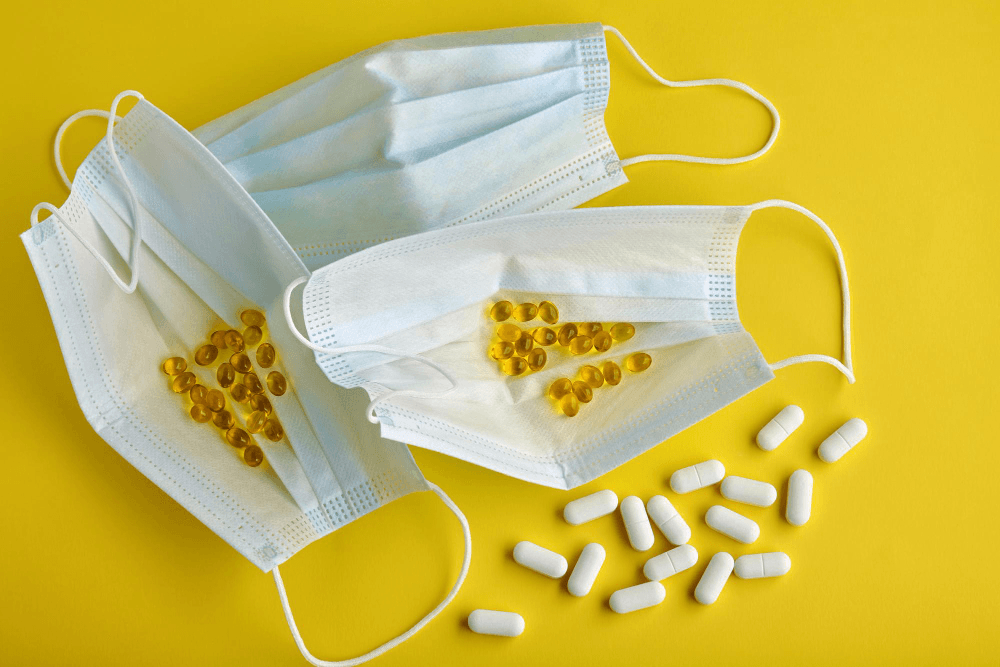Vitamin D and its Link to COVID-19


The 'sunshine vitamin' can help your immune system to fight SARS-CoV-2.
The spread of SARS-CoV-2 (also referred to as COVID-19) from the Wuhan region of China shook the world. As of May 2022, more than 22 million cases have been reported in the United Kingdom, with the total death toll reaching 200,000. The control and treatment of COVID-19 have become a challenge for medical professionals worldwide. As the vaccine development was not expected to be so quick, physicians began to prescribe immune boosters to patients hospitalised for COVID-19 with variable results, and vitamin D was among these boosters.
What is this Vitamin D? How does it influences our immune system? Can it help you with COVID-19? Let's answer these frequently asked questions. If you are more interested in an overview of COVID-19, then read our comprehensive guide written by DR. Williams, which includes symptoms, causes and testing for COVID-19.
It might surprise you that vitamin D is not a vitamin in the first place. It is a steroid hormone involved in several physiological processes, e.g., it helps the body in the absorption and retention of calcium and also influences the transcription of relevant genes in the immune cells, e.g., dendritic cells, macrophages and T cells. By tradition, it is placed in the vitamin family. The vitamin D receptors are present throughout the body, suggesting that its role in the body is not yet fully appreciated.
The most important function of vitamin D is to strengthen your bones. Have you ever seen people lying in the sun on beaches? They are taking in the sunshine to boost their vitamin D levels. The cells in your skin can absorb the ultraviolet light from sunlight to prepare vitamin D. But, the levels are usually not sufficient in people who have no access to natural sunlight, and don't take enough of it in food.
Although the immune-boosting functions of Vitamin D were well known, some detailed studies hinted at its relationship with COVID-19. Several studies and reports have confirmed the role of vitamin D in SARS-CoV-2 infection. In addition, people with low vitamin D levels were more affected by the virus.
Moreover, some earlier reports highlighted that severe vitamin D deficiency was associated with poor prognosis in respiratory diseases. Due to this circumstantial evidence and its immune-boosting effects, physicians worldwide started prescribing vitamin D supplements to exposed and infected people.
Similarly, a review published in 2021 found that patients with lower vitamin D levels are 1.64% more likely to contract the COVID-19 disease. Another study in the same year found that patients having a vitamin D level of 50 nmol/L or lower are 2.42 times more likely to develop severe disease. Remember that the most common circulating form of vitamin D is 25-hydroxyvitamin-d (25(OH)D) and according to the National Institute of Health (NIH), a serum concentration of 75-125 nmol/L is ideal. The values beyond 125 nmol/L may reflect vitamin d toxicity.
Additionally, the increased production of pro-inflammatory cytokines in the form of a cytokine storm causes damage to the lung tissues resulting in respiratory failure in vitamin D deficient patients. Vitamin D comes to your rescue by converting these pro-inflammatory cytokines to anti-inflammatory cytokines, thus reducing lung damage in respiratory viral infections.
A study conducted on 107 patients in 2020 found that the vitamin D status of the patients who were positive for COVID-19 was poorer than that of people who tested negative.
A vitamin D supplement is used in acute respiratory tract infections because of its immune-stimulating effects.
Its effects on your immune system are:
Although vitamin D's immunity-boosting and anti-inflammatory properties are well known, they also appear to have antiviral properties. So, besides stimulating your immunity, it will also restrict the multiplication of the viruses.
If vitamin D is so helpful in COVID-19, why is the world so worried about it? It is because taking vitamin D alone would not be enough. You have to take various other immune response regulators. So it will just help your body cope with the stress and will not serve as a substitute for a vaccine.
So, it could be concluded that although vitamin D alone can't help you with COVID-19, it can lessen the disease severity and help you to avoid complications. Therefore, it would be worthwhile to take the advice of your healthcare provider about vitamin D supplementation if exposed to COVID-19.
Your healthcare provider may recommend you undergo a blood test to determine your level of vitamin D. Most supplements are designed to deliver a daily dose of 8.5-10 mcg (about 400 international units) of vitamin D per day. However, if your serum vitamin D levels are too low, your physician may recommend you take more vitamin D.
See our vitamin D supplement here.
Although no cure for COVID-19 was available initially, the researchers noted that the incidence of the disease is considerably higher in people who have a poor vitamin D status. Consequently, adequate vitamin D status is recommended for a better prognosis in COVID-19.
Research has highlighted that vitamin D deficiency can increase the occurrence of cytokine storms and reduce the severe complications of COVID-19 disease. So consider vitamin D supplementation to your diet to boost your immunity.
To take a vitamin D blood test, click here.
For a full range of blood tests and medications, visit our Welzo Online Pharmacy Page. For more details, click here.










Plus get the inside scoop on our latest content and updates in our monthly newsletter.